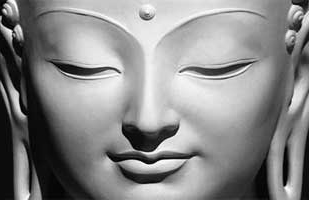
Chapter XI - JARA VAGGA - Old Age

RIGHTEOUSNESS DOES NOT WEAR AWAY
Jiranti ve rajaratha sucitta atho sarinam pi jaram upeti
Satam ca dhammo na jaram upeti santo have sabbhi pavedayanti. [151]
Even ornamented royal chariots wear out. So too the body reaches old age. But the Dhamma 1 of the Good grows not old. Thus, indeed say the Saints2 among themselves. [151]
XI:06 The queen who regretted over a minor mistake (Mallika)
One day, Queen Mallika went into the bathroom to wash herself. Her pet dog also went in. As the dog saw her bending over to wash her feet, it began to misbehave with her, and the queen did not stop it. The king saw this strange incident through the window of his bedroom. When the queen came in, he said angrily to her, 'Oh, you wicked woman! What were you doing with that dog in the bathroom? Don't deny what I saw with my own eyes.' The queen replied that she was only washing her face, her hands and her feet, and that she had done nothing wrong. Then she continued, 'But, that room is very strange. If anyone was to go into that room, looking from this window there would appear to be two. If you don't believe me, O king, please go into that room and I will look through this window.'
So, the king went into the bathroom. When he came out, Mallika asked the king why he misbehaved with a she-goat in that place. The king denied it, but the queen insisted that she saw it with her own eyes. The king was puzzled, but being dim-witted, he accepted the queen's explanation, and concluded that the bathroom was indeed very strange.
From that time, the queen was full of remorse for having lied to the king and for having brazenly accused him of misbehaving with a she-goat. Thus, even when she was approaching death, her mind was disturbed by that particular incident and she had no chance to recall the great meritorious deeds that she had done and only remembered that she had been unfair to her husband. As a result of this unwholesome last thought*when she died she was reborn in a suffering state. After her funeral, the king wanted to ask the Buddha where she was reborn. The Buddha wished to spare his feelings, and also did not want him to lose faith in the Dhamma since his understanding was not very deep. So he willed that this question should not be put to him, and King Pasenadi forgot to ask the Buddha. The king visited the Buddha for seven consecutive days but was not able to ask his question.
However, after seven days in the suffering state, the queen was reborn in the Tusita deva world. On that day, the Buddha went to King Pasenadi's palace for almsfood. The king finally remembered to ask where the Queen was reborn. When told that she was reborn in the Tusita deva world, the king was very pleased and said, 'Where else could she be reborn? She was always thinking of doing good deeds. Venerable Sir! Now that she is gone, I, your humble disciple, hardly know what to do.' The Buddha advised him, 'Look at these carriages of your father and your grandfather; these are all worn down and lying useless; so also is your body, which is subject to decay and death. Only the Dhamma of the Virtuous is not subject to decay.'
Notes:
- The nine supramundane states are the four Paths, the four Fruits and Nibbana.
- Such as the Buddhas.
- * According to Abhidhamma philosophy, at this critical stage the dying person is presented a Kamma,Kamma Nimitta or Gati Nimitta which determines the next existence.
- Kamma means some good or bad act done during one's lifetime or immediately before the dying moment.
- Kamma Nimitta or 'symbol' means a mental reproduction of any sight, sound, smell, taste, touch or idea which was predominant at the time of some important activity, good or bad, such as a vision of knives or dying animals in the case of a butcher, of patients in the case of a physician, and of the object of worship in the case of a devotee, etc.
- Gati Nimitta or 'symbol of destiny' means some symbol of the place of future birth. This frequently presents itself to dying persons and stamps its gladness or gloom upon their features. If bad indications are indicated, they can at times be remedied by influencing the thoughts of the dying person. Such premonitory visions of destiny may be fire, forests, mountainous regions, a mother's womb, celestial mansions, and the like.

Editor for Buddha brothers: Matthew Laird Acred
If you should encounter any bugs broken links, or display errors just email us.
Buddha brothers has been running since Aug 2010 and can continue to run with your kind help!
If you love our website please donate so we can make this site even better !!